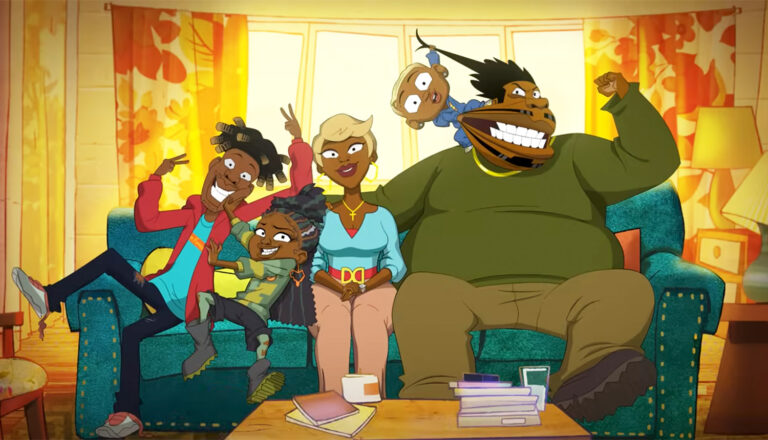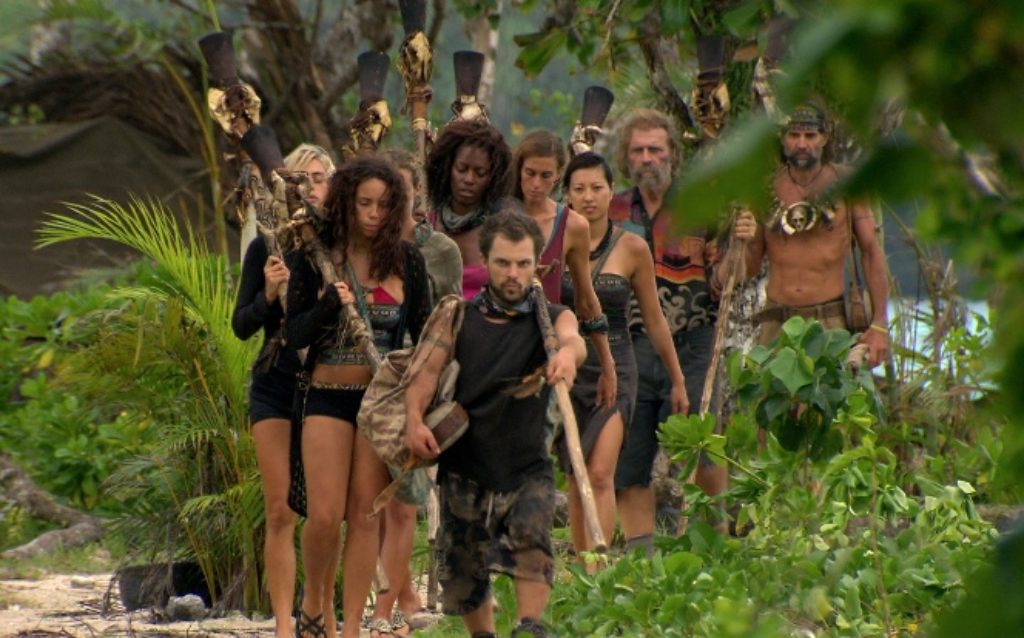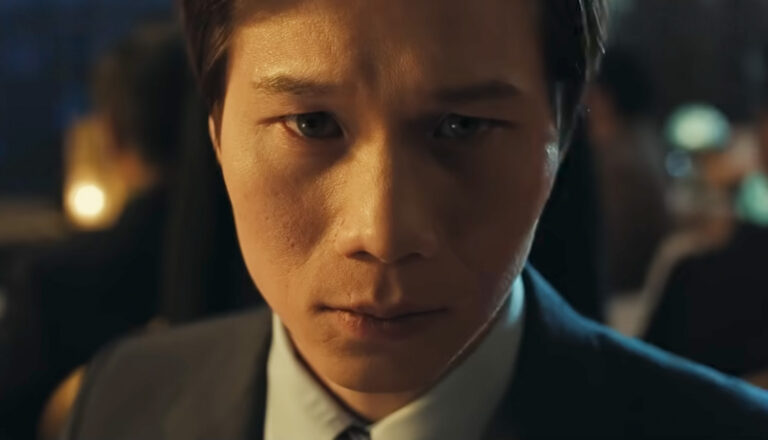
Good Times
Netflix takes a classic sitcom, Good Times, and turns it into a vulgar, violent, sexually-charged TV-MA show.

Who’s your daddy? If you’re a newborn reality television show, the answer might well be Survivor.
Oh, sure, reality TV has other forbears, from 1950s-era game shows to PBS real-life documentary series to Candid Camera. MTV’s The Real World, which some say sparked the reality television boom in America, predates Survivor by eight years. But it was CBS’ go at it in 2000 that served as the tipping point. And the television landscape has never been the same.
It’s 23 seasons later as I write this update to our review (typically, CBS airs two seasons per year), and much has changed since the first Survivor winner—duplicitous, gay nudist Richard Hatch—walked away with the show’s first $1 million prize. Its makers have pitted young against old, male against female. They’ve hidden secret immunity idols and created last-chance Redemption Islands. But the premise of the game remains as pure and problematic as ever: One person must do anything and everything to outwit, outplay and outlast all others.
Each season, a collection of contestants gather at some remote, tropical outcropping. (Just once, I’d love to see Survivor: Alaska, but girls wearing parkas instead of bikinis wouldn’t do much for the ratings.) At first folks are split into two “tribes,” which compete against each other in a series of telegenic challenges. At the end of each episode, someone from the losing tribe is voted off. Once the tribes have been whittled down for a while, they combine into one, where the individual battles begin.
Survivor, then, is a study in tribal politics and, by extension, human behavior.
And that makes it one of the most intriguing, most strangely complex reality programs ever conceived. While some viewers are more apt to keep up with the Kardashians or hang out on the Jersey Shore, CBS’ long-in-tooth game/battle gives its fans more meat than they realize. Each season, ethical strategies are pitted against one another. Subtle conversations can have a far bigger impact than the most intense physical challenges. Part of the appeal of the show is finding heroes to root for and villains to hiss, and understanding from the get-go that the bad guys sometimes—no, often—win.
Are they really bad guys, though? Or are they just really good at playing the game? Should we applaud their brilliant strategies or bash their lack of basic human kindness? In other words, should we be drawing the same lines inside this series as we do out here in the real world?
The show has its share of content concerns: Contestants sometimes wear as little as possible in these warm realms … and occasionally, as was the case with Hatch, wear nothing at all. Over the years, nudity has been seen from time to time. (Or should I say not quite seen: Private parts are pixelated.) Foul language is part and parcel of the game, too: F- and s-words are mostly deleted, but pretty much everything else runs as is. Oh, and let’s not forget, the makers of Survivor love to force queasy contestants to vomit whenever possible.
But the bigger issue here is the philosophy I’ve already alluded to. And addressing that, Steven Isaac’s words in our original 2000 review of the show still ring true:
“Survivor isn’t at all about shipwreck victims lost at sea foraging for food. It’s a microcosmic experiment in social Darwinism. ‘Who shall we get rid of today?’ We’ve all wished at some point or another (especially as teenagers) that we could be rid of someone in our life. But we’ve always been taught to mend fences and learn to get along. The world according to Survivor, however, would teach kids that the best way to get ahead is to rally popular support and eliminate the undesirables.”
It is truly a Darwinian premise we’re dealing with here—only in this incarnation, the fittest don’t always survive. Those who “outplay” the others (that is, excel in the challenges) can be perceived as threats. True power, however, lies not in the individual, but in the clique: Alliances form, then shift and crumble, only to rise again. Members of one tribe are often picked off by members of another—something that (perhaps unfairly) reminds me of the days when people groups or families or city states would massacre their rivals. Players scheme, connive and lie. Even seemingly good deeds are done with strategic, not altruistic, goals in mind.
This is a game, we tell ourselves as we watch, transfixed by the nearly Shakespearean interplay of personalities. And then, hopefully, we start to doubt our easy assessment, wondering, How much does this game reflect real life? Is that the way I need to act to get ahead? Do nice guys really finish last?
Because in Survivor, the nice guys can finish first. But not often.
“Cut Throat”
Never mind that the tribes have merged. Old allegiances are hard to shake. For everyone except Cochran, apparently. After turning his back on his tribe to join the other, Cochran gets an earful of (bleeped) profanity from his former allies—who point out that he was saved from the chopping block several times by the very people he’s now betraying. He defends his actions by saying, “I haven’t been obsessed with this for 11 years to have my fate decided by picking a stone out of a bag.”
One contestant, Coach, appears to say a prayer and practice Tai Chi. He pledges to be “confident but not arrogant, humble but not weak.” Someone is seen as a threat because she’s too likable. Guys and gals wear sparse amounts of clothing. Someone vomits up coconut milk. Bleeped f- and s-words mingle with uncensored uses of “a‑‑” and abuses of God’s name.


Paul Asay has been part of the Plugged In staff since 2007, watching and reviewing roughly 15 quintillion movies and television shows. He’s written for a number of other publications, too, including Time, The Washington Post and Christianity Today. The author of several books, Paul loves to find spirituality in unexpected places, including popular entertainment, and he loves all things superhero. His vices include James Bond films, Mountain Dew and terrible B-grade movies. He’s married, has two children and a neurotic dog, runs marathons on occasion and hopes to someday own his own tuxedo. Feel free to follow him on Twitter @AsayPaul.

Netflix takes a classic sitcom, Good Times, and turns it into a vulgar, violent, sexually-charged TV-MA show.

While its protagonist might live a nuanced life, The Sympathizer’s problematic content can’t be described the same way.

Say hola once again to the iconic explorer in this faithful reboot of the children’s series.

Based on a popular video game, Ark: The Animated Series features hungry dinosaurs, bloodthirsty people and plenty of problems.